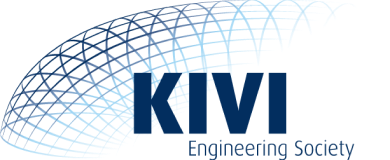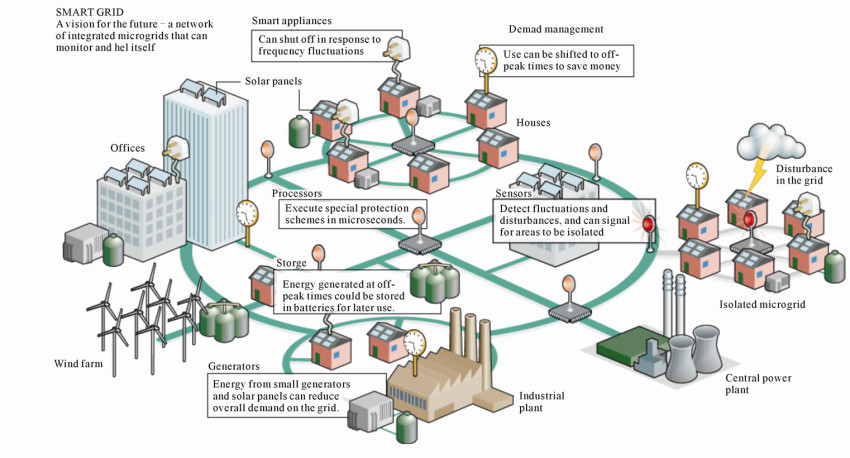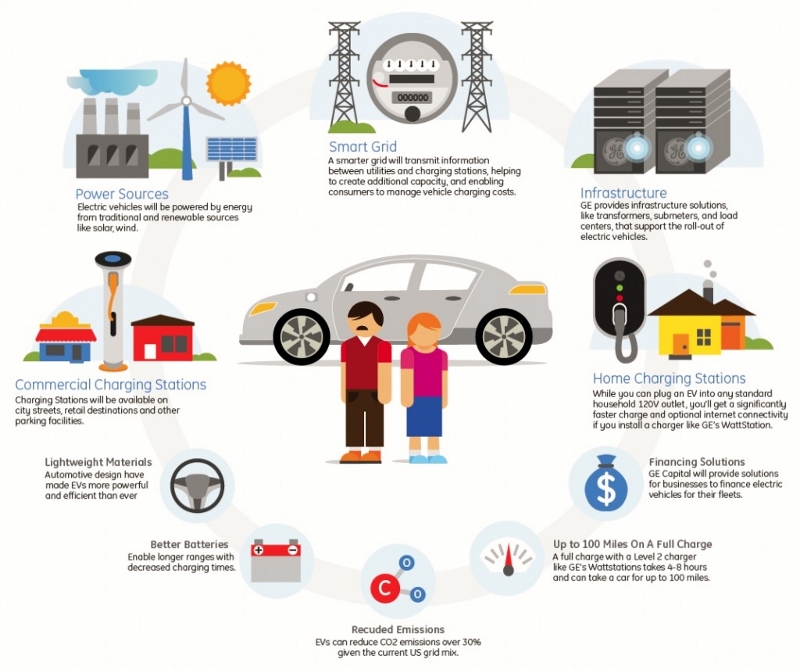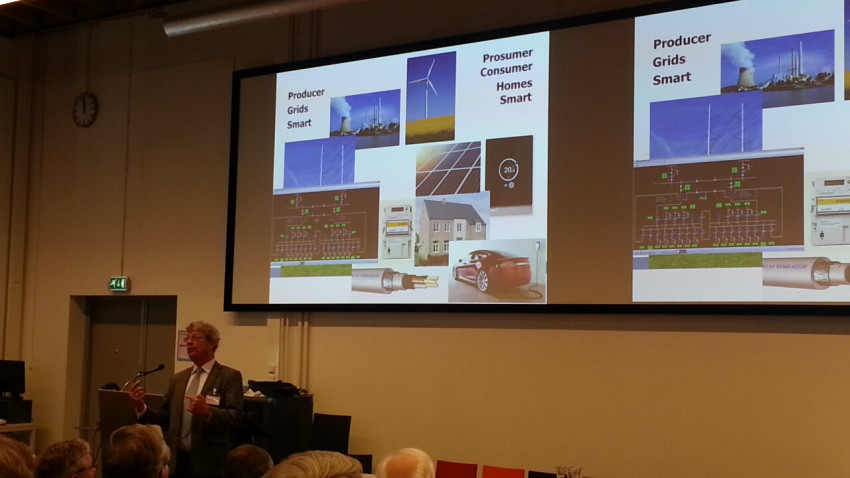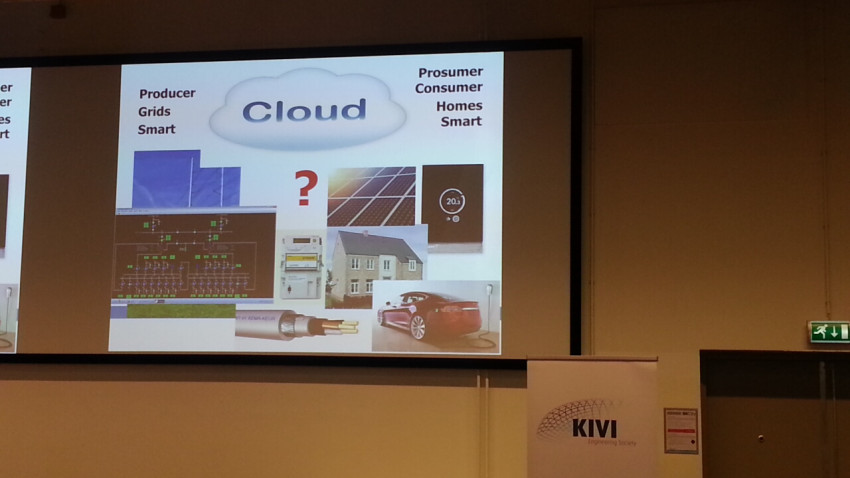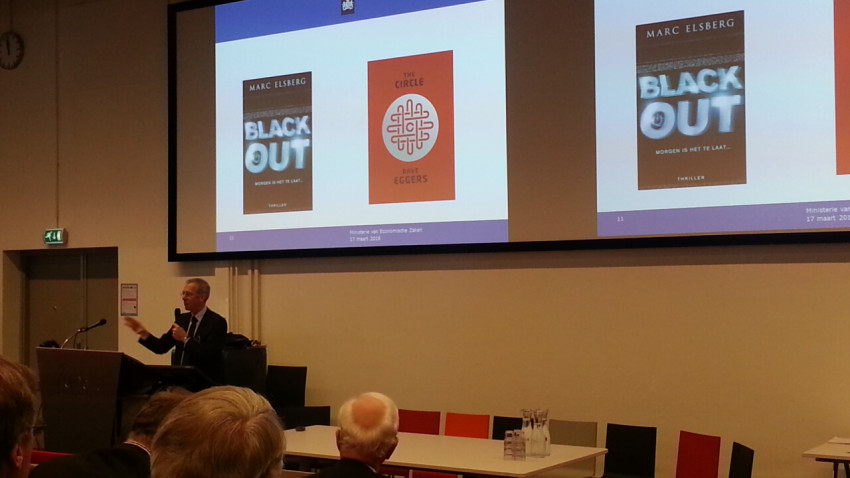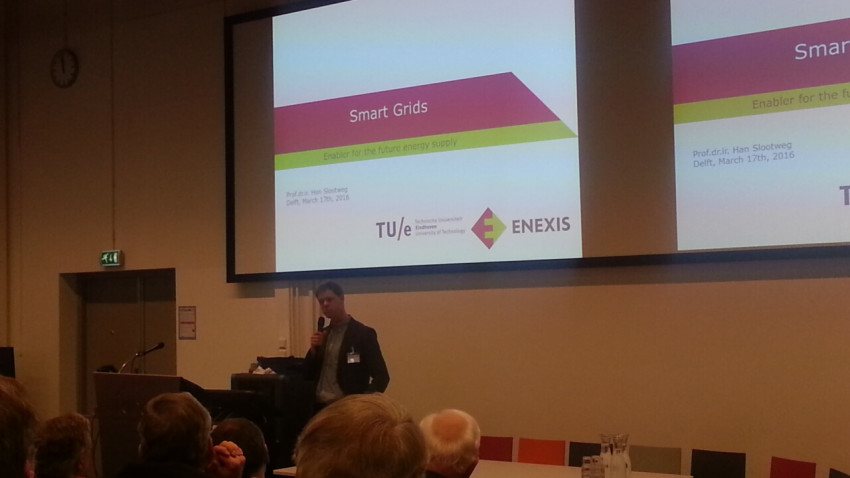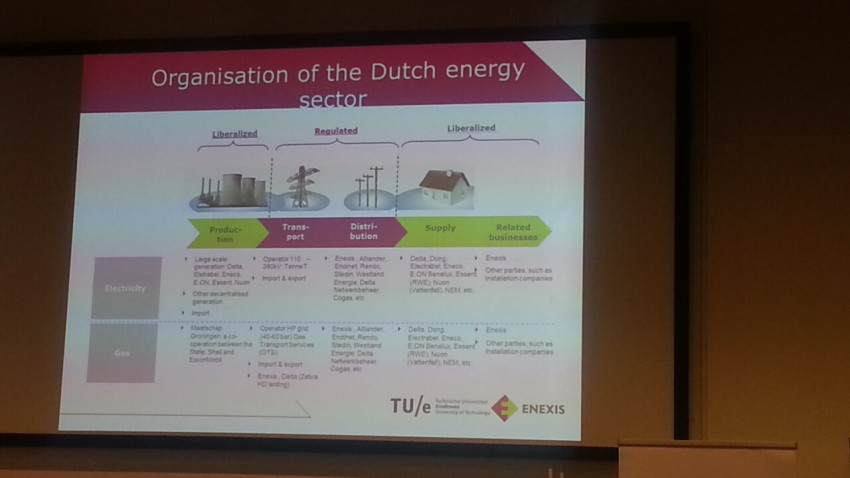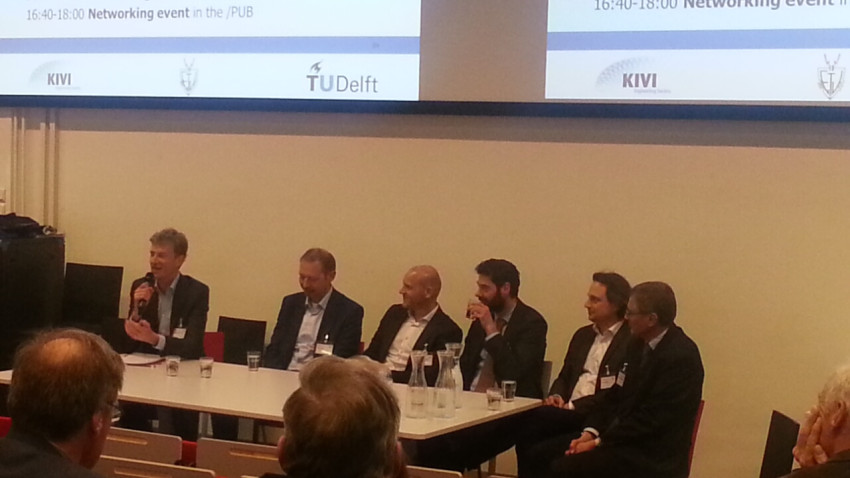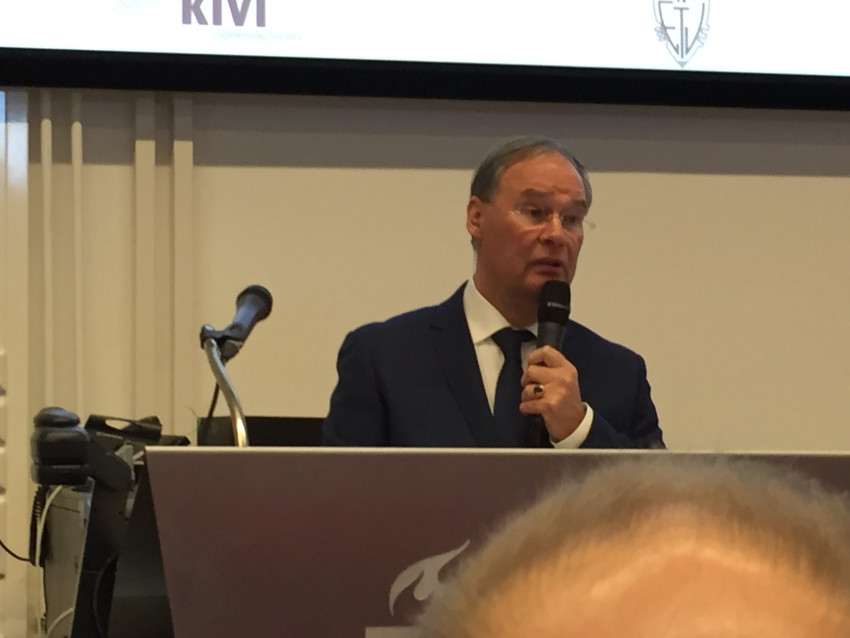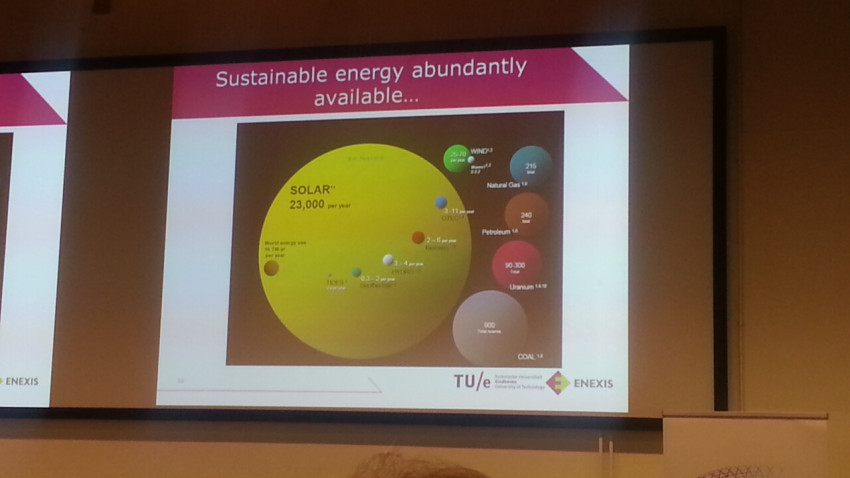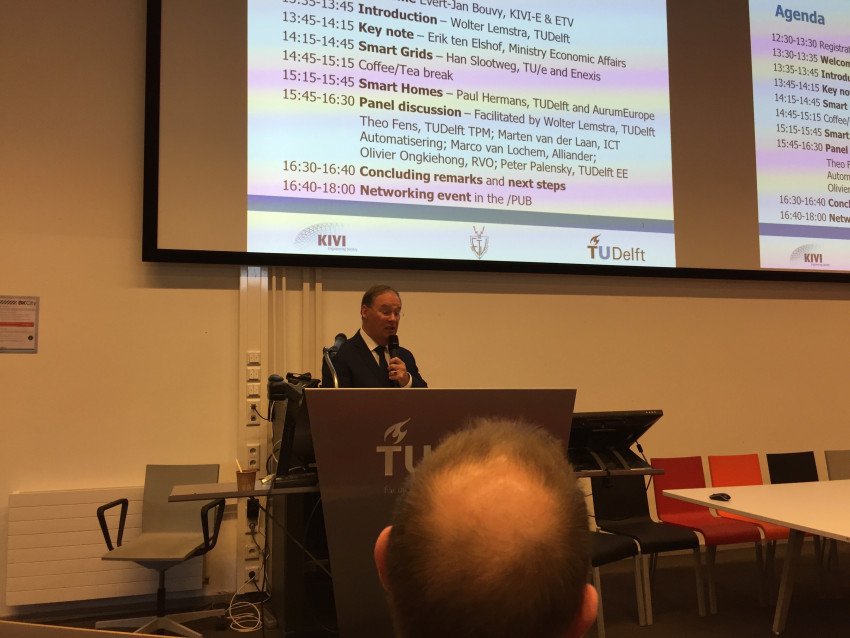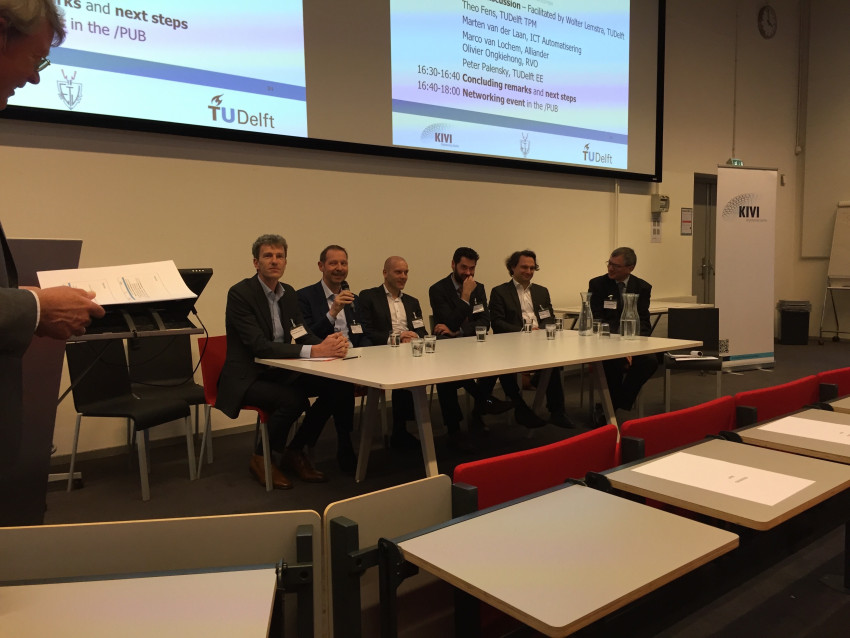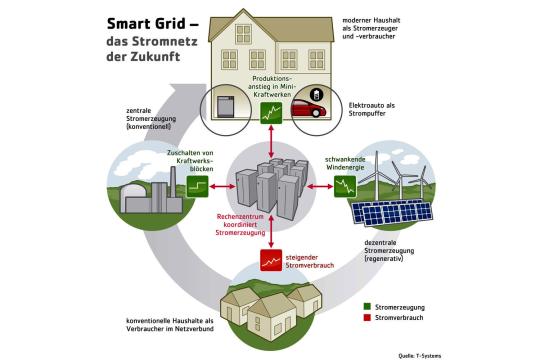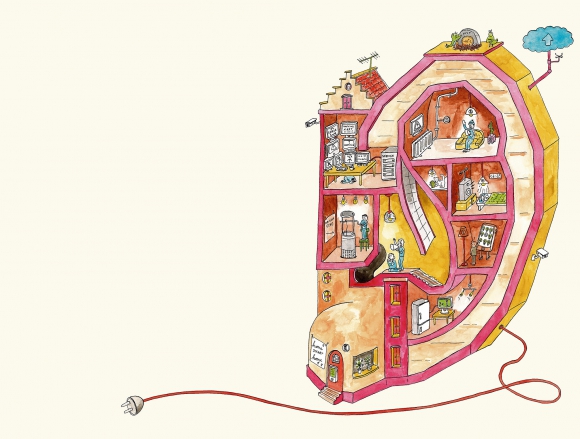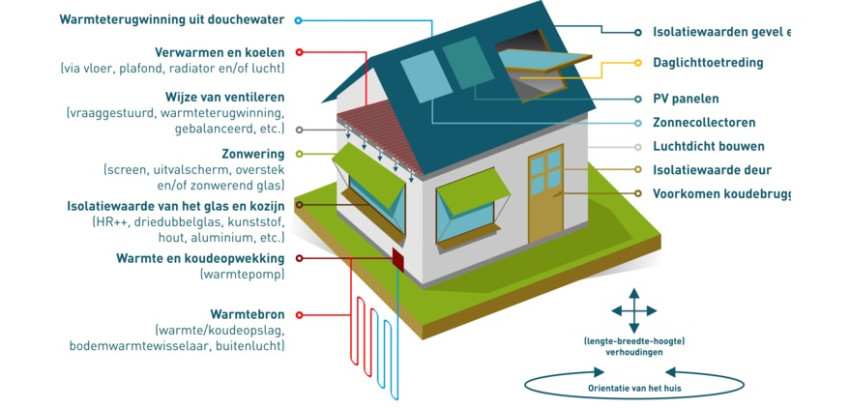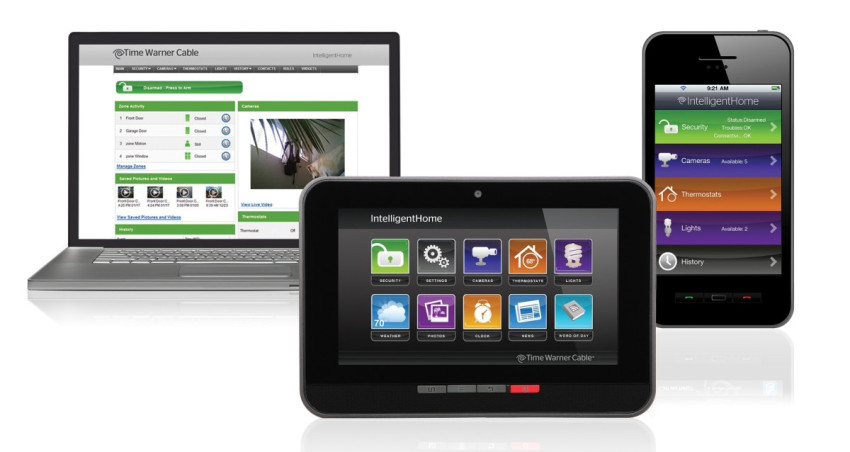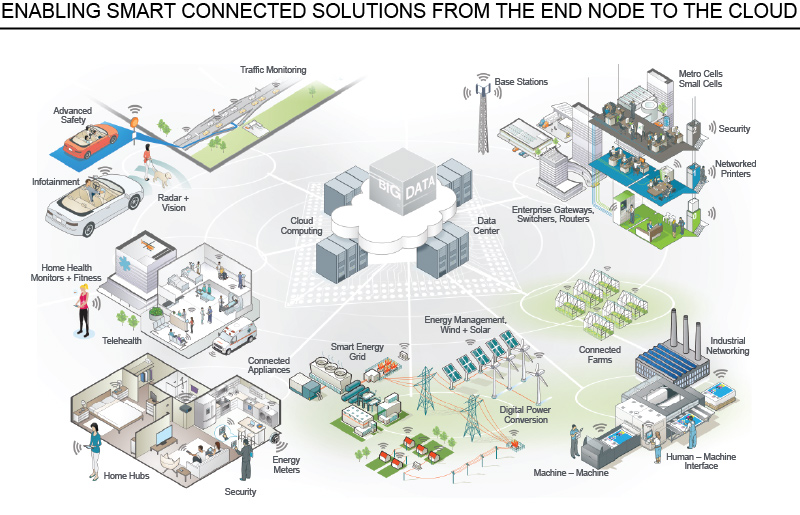
Smart Grids and Smart Homes
Article in the undepended University Newsletter Delta TU-Delft
"Matchmaking smart grids and smart homes" by Marco Villares Delta TU Delft
The development of smart grids and the smart smart homes they are connected to is apparently not in synch. The aim of a symposium on the topic was to see if integration of the two is possible to contribute to a sustainable energy transition. Around 75 attendees heard two perspectives from the smart grid and smart home sectors and then participated in a lively debate with an expert panel about measures to promote integration. It was organised on March 17 2016 by the Royal Netherlands Society of Engineers (KIVI), the Electrical Engineering department and the Association of Electrical Engineering Students (ETV) of TU Delft.
Smart grids
Han Slootweg, of Enexis and electrical engineering professor at TU Eindhoven, sees smart grids energy as transition enablers. The present electrical power system is already quite smart in matching supply to demand. But the introduction of intermittent renewable wind and solar energy and more flexible consumption will increase complexity and reduce controllability. This can be managed with ICT technology for information exchange between actors. Low bandwidths are sufficient to cope with this extra ICT layer added to the existing grid. Slootweg echoed that integration with smart homes is needed.
Smart homes
Paul Hermans, of Aurum and PhD researcher at TPM, contrasted the regulated domain of the grid focused on balancing demand and providing security of supply with the free domain of the household where consumer choice and lowering energy bills predominate. We see innovations arriving fast to make homes smart but slowly in regulated grids, exemplified by the twelve years taken to develop smart meters. The solution could be an agent based transaction interface mediating the preferences of the grid operators and home consumers. Hermans also said we are electricity illiterate, knowing nothing about our own energy use, but this can be set right by education.
Complex transition
The panel concluded that it is not a pure technical issue and the shift will mean changing societal roles and responsibilities but this happens slowly as changing regulations should be done with caution.
There was optimism about technological feasibility but adaptable legislation has to be in pace with innovation and government needs to provide the right incentives. Current energy tariffs do not reflect social costs, not giving consumers an indication of how to reduce consumption.
See pictures of the symposium Smart Grids and Smart Homes at the ETV website
Omschrijving
Smart Grids and Smart Homes,
where the twain will meet!
March 17, 2016 the Electrotechnische Vereeniging (ETV) at Technical University Delft (TU-Delft) will be celebrating its 110s anniversary. This celebration provides KIVI-E with the opportunity to organize, in collaboration with the ETV, a half-day seminar on a topic that fits the Lustrum Theme of this week i.e. “power”.
The incentive for KIVI-E to participate and support a seminar from a content perspective, is to promote KIVI-Electrical with the alumni of TU Delft, department Electrical and attract students as (future) members.
Because of the higher penetration of wind- and solar energy in the nearby future, there is a need for storage of electric energy and controlling the demand for electric energy. A solution for this balancing problem in the network is a large degree of integration between the grid and the home to realize this smart solution.
This includes the use of storage facilities as part of the smart home, e.g. using the batteries in the electrical car and/ or install stationairy batteries. However, there appears to be a ‘disconnect’ between the vision and reality as very few if any study is addressing the coordination that is required between these two worlds to realize the vision. Who will control the use of the car battery? How will the possibly conflicting requirements be resolved?
There appears to be some sort of ‘non-connect’ between the developments in the world of the smart home and the world of the smart grid.
In fact the grid and the home only have a very basic interconnection, constituting a two wire pair (single phase assumed), a manual switch and a meter recording energy use. While the meter is called ‘smart’, when it can be read-out remotely, it does not provide any intelligence on the basis of the metering data.
Any coordination between the two worlds is considered to go ‘over-the-top’, through price-driven contracting, using the Internet as the conveyer of information between the two worlds.
The two worlds may be using the same metering data to provide services and to provide network management functions.
Initial insights suggest that the smart home and smart grid constitute largely separate technological development trajectories, with different industry actors playing a key role, essentially following different industry paradigms.
Another insight suggests that the worlds of energy and ICTs are still very different and will have to come together to realize the vision. For instance the product life cycles are far apart, anywhere between 50 years and 5 years.
The technology replacement and upgrade philosophies are very different. The impact of failures is perceived differently. In short paradigms while need to become aligned for the vison to become a reality, along the dimension of ‘home and grid’ and the dimension of ‘information and communications technology and energy technologies’.
Hence the title: “Smart Grids and Smar
Spreker(s)
Welcome and Introduction by Dr. Ir. Wolter Lemstra TUDelft, dept. Technology, Police and Management (TPM) and Alborg University (CMI)
Opening keynote by Mrs. Drs. Maaike van Asten, Ministry of Economic Affairs, member of the Management Team of the department Energy and Innovation
Smart Grid by Prof. Dr. Ir. Han Slootweg, TU Eindhoven Electrical Engineerng, Smart Grids and Enexis
Smart Home by Drs. Paul Hermans, AurumEurope, EnWire and TUDelft, Dept. Technology, Policy and Management
Panel discussion facilitated by Wolter Lemstra,
Panelmembers:
Prof. Dr. Peter Palensky, Intelligent Electric Power Grids TUDelft, EWI.
Drs. Marco van Lochem, Alliander IT, Energy Transition & Energy Business Models.
Ir. Olivier Ongkiehong, Ministry of Economic affairs, RVO
Dr. Theo Fens, TUDelft, Dept. TPM.
Drs. Paul Hermans, AurumEurope and TU Delft/ TPM.
Dr. Ir. Marten van der Laan, ICT Automatisering, Power Matching City, pilot Smart Grid.
Locatie
Delft Technical University Location Building 8
Lecture room A, Julianalaan 134, 2628 BL Delft
Organisator
Elektrotechniek
ETV = the Electrotechnische Vereeniging
Naam en contactgegevens voor informatie
Ir. Evert-Jan Bouvy tel. 0654283060 e-mail ej@bouvy.info
Documenten
- 0. Intro KIVI-EL-ETV - Smart Grids and Smart Homes March 17, 2016
- 1. Presentations KIVI-ET-ETV TU Delft Symposium Smart Grids and Smart Homes
- 2. Presentation Min EZ KIVI Smart Grid and Smart Homes March 17, 2016
- 3. Presentation Prof. Han Slootweg ETV KIVI Smart Grids March 17, 2016
- Info blad Elpec met referentie aan symposia
- Map Faculty Architecture Building 8 TUD
